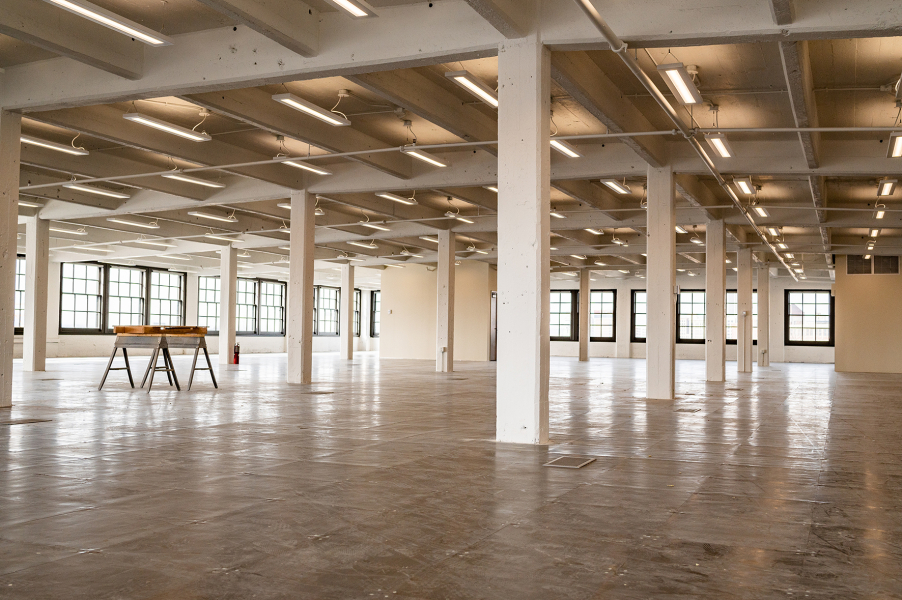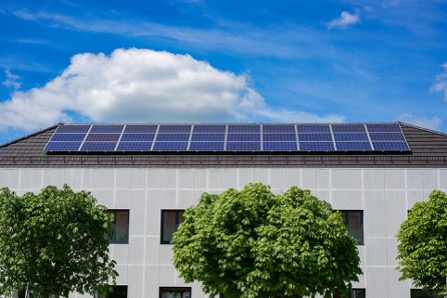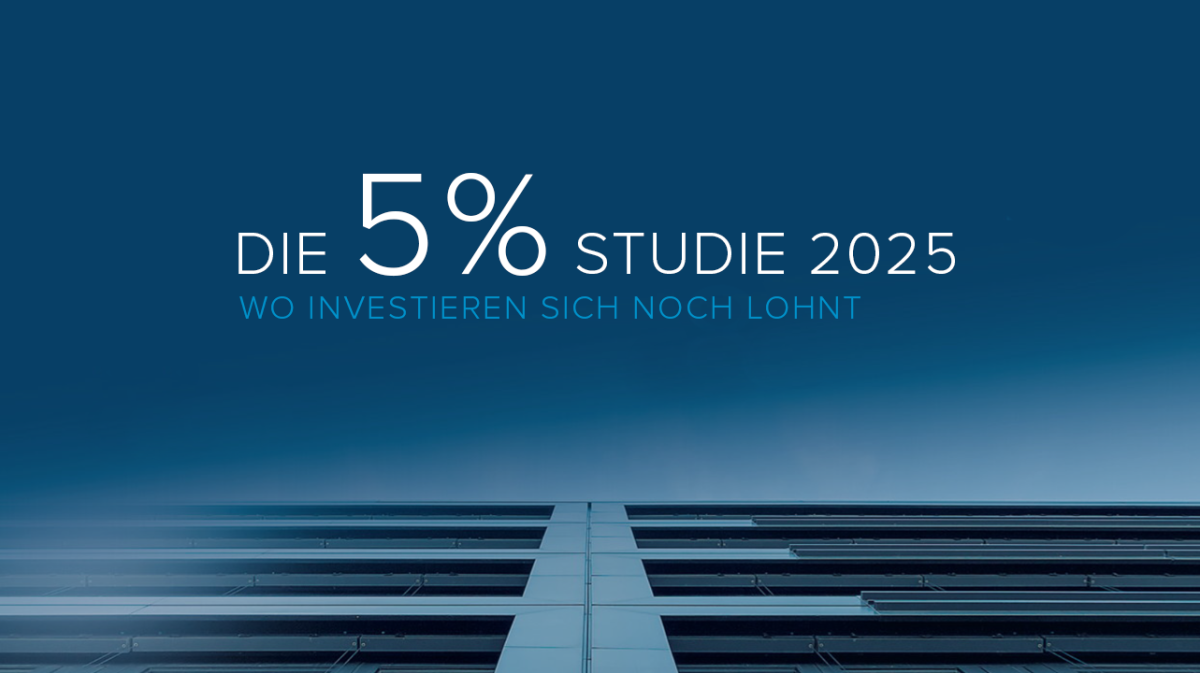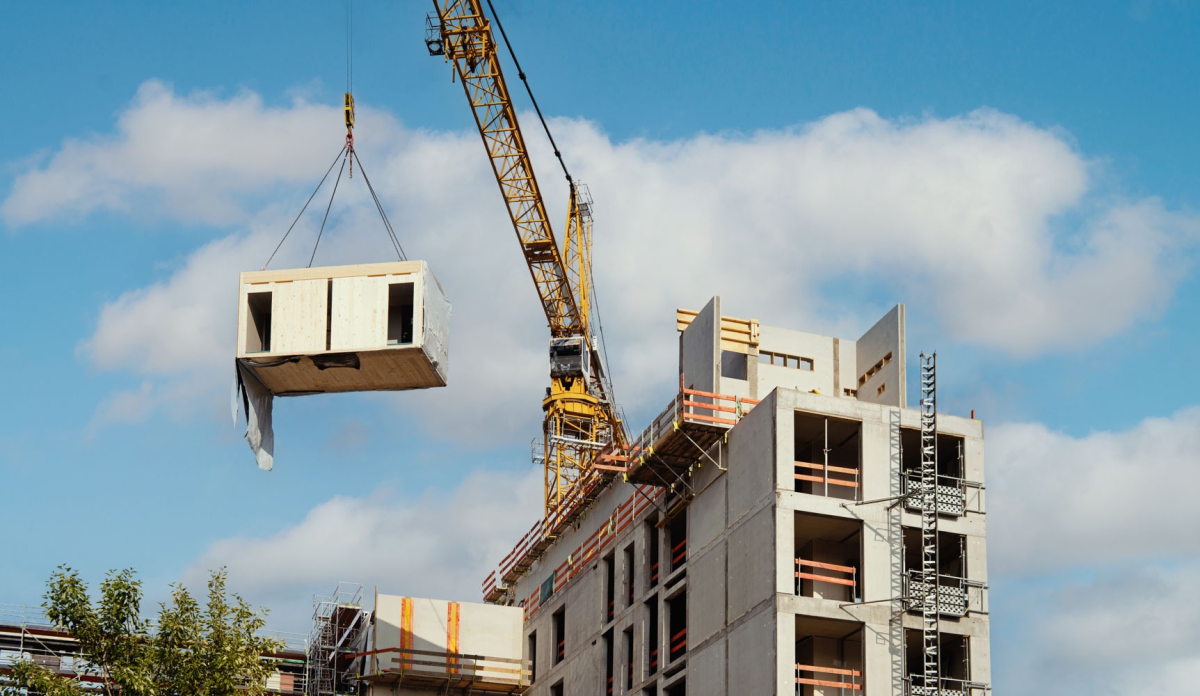Sustainability Creates Favourable Conditions for Transformation
Not every existing property "functions" anymore. What to do? Demolish and rebuild or transform and reuse? We asked around 200 experienced players and, together with Union Investment, have now published the second market analysis on transformation properties.
The correct handling as well as the further development of the existing stock is certainly one of the trend and future topics of our industry. The results and findings from the study should help to improve the planning and implementation of transformation projects. After all, transformation properties can be a profitable approach both for achieving climate goals and from an investment perspective, as well as for increasing the quality of life in cities.
According to the respondents, the most important goal of a transformation is to implement a sustainable utilisation concept. This is followed by the points of income security and increasing the value of the property - the economic aspect of a transformation is absolutely central. Almost all of them consider mixed-use concepts to be helpful in order to guarantee cash flow over the life cycle. Incidentally, the preferred uses after a transformation are privately financed flats and retail for periodic needs.
Sustainability versus cost issues
Transformation properties are currently caught between rising interest rates and high construction costs, sustainability requirements by the EU taxonomy as well as high inflation and high energy prices. On the investment market, low transaction volumes indicate that the price expectations of buyers and sellers often do not coincide and the search phase is still ongoing. The construction boom also came to an abrupt halt in autumn 2022. It is therefore hardly surprising that, according to the survey participants (77%), the scarce availability of raw materials in particular is a strong driver favouring the transformation of real estate instead of new construction or demolition and new construction. National and EU sustainability requirements are also clear effects that, according to the respondents, favour the transformation of real estate instead of new construction or demolition and new construction. Likewise, a majority (59%) believe that the implementation of transformational real estate will cause fewer problems due to rising construction and energy costs and disrupted supply chains than new construction projects.
In general, sensitivity to costs is high, which is understandable given the significantly more difficult general conditions. Overall, most respondents are willing to accept cost uncertainty, but only to a fairly small extent. More than half of the respondents would probably not be prepared to accept the cost uncertainty of around twenty percent that is necessary for a transformation of a property. Thus, at least in the current market situation, only a relatively small proportion of respondents would be open to embarking on such projects.
Transformation also means a circular economy
The real estate sector is considered one of the main emitters of CO2. In order to actually achieve savings potentials, the way existing properties are dealt with will be decisive, as they no longer meet sustainability requirements, but also current user demands and economic requirements. Transformation processes should therefore not only be well justifiable in terms of returns, but also aim for the best possible achievement of climate target criteria.
ESG criteria are relevant for institutional real estate investors. Investors are increasingly focusing on the sustainability of their investments. In this context, not only "green" is important, but also the benefits for users, e.g. through an improvement of the environment and a smart neighbourhood concept. The two success factors that specifically count towards the E in ESG are the lowest possible CO2 emissions in the operation of the transformation property and the achievement of the national CO2 targets - both are very important for 85% of the respondents.
Instead of demolition and new construction, more transformation and reuse is required. The transition to a resource-conserving circular economy is an indispensable prerequisite for climate neutrality in the real estate industry.
Policy should aim to improve feasibility
There is a broad range of wishes for political institutions to improve the feasibility of transformational real estate. At the top of the wish list are easier permission for use and exemption from requirements, as well as permission for higher space utilisation. 80% of the respondents would like to see a clear inter-agency project organisation at the municipalities as well as the merging of rapid planning processes and citizen participation. Many respondents would be willing to implement additional measures if only to obtain a quick building permit. What is remarkable: 60% of the respondents would also offer rent-reduced areas for social and cultural spaces in exchange for a quick building permit, and almost every second person would be willing to provide a higher share of socially subsidised housing.
Note: You can request and download the study free of charge from the Union Investment website.
Contact: Felix Embacher, Head of Research & Data Science at bulwiengesa, embacher@bulwiengesa.de
You might also be interested in
For our magazine, we have summarized relevant topics, often based on our studies, analyses and projects, and prepared them in a reader-friendly way. This guarantees a quick overview of the latest news from the real estate industry.
Little movement on the German real estate market
For the eleventh time, bulwiengesa presents its comprehensive analysis of the German real estate markets. The results of this year's 5% study, conducted in collaboration with ADVANT Beiten, show that the German real estate market is characterized by widespread stagnation. At the same time, niche segments are becoming increasingly attractive. The market is increasingly rewarding professional asset management and specialist knowledge—a trend that separates the wheat from the chaffFive per cent returns no longer illusory even for core properties
The ‘5% study - where investing is still worthwhile’ celebrates its tenth anniversary. Since the first edition was published, the German property market has tarnished its reputation as a safe investment haven. Higher yields are now within sight, even for prime properties, and even residential property is increasingly becoming a profitable asset class again. The market is more exciting than it has been for a long timeValuation for corporate insolvencies
In turbulent times, more companies than ever are facing insolvency. According to our data alone, this affects around 400 project developments and countless existing properties. Ideally, valuations for insolvency administrations show more than the actual valueInteresting publications
Here you will find studies and analyses, some of which we have prepared on behalf of customers or on our own initiative based on our data and market expertise. You can download and read many of them free of charge here.







